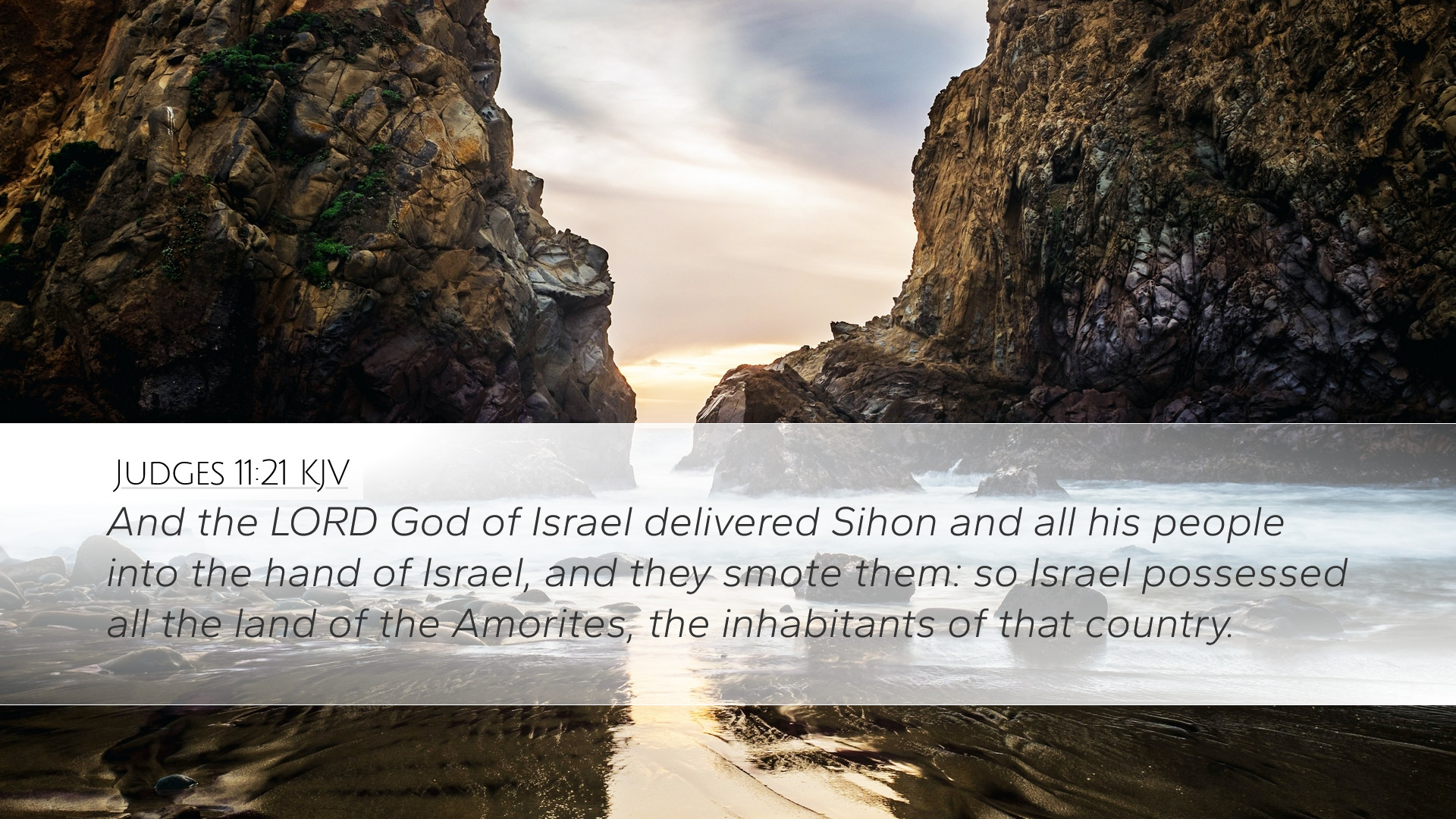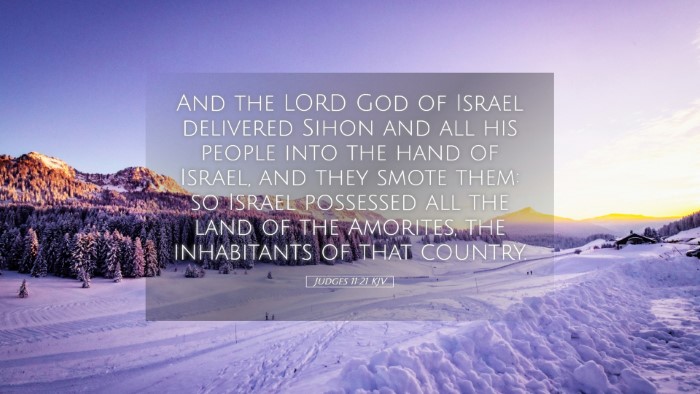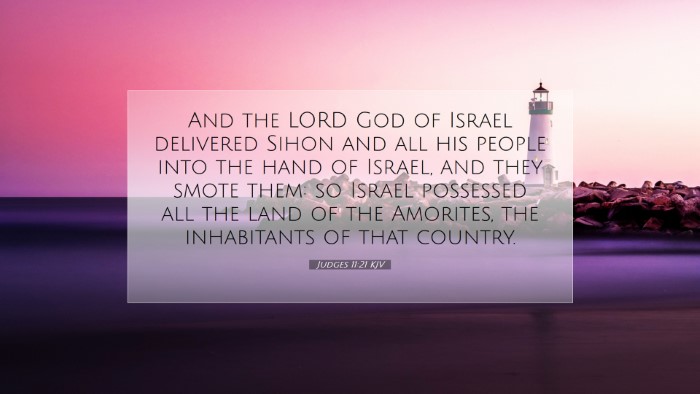Commentary on Judges 11:21
Judges 11:21 states, "And the Lord God of Israel delivered Sihon and all his people into the hand of Israel, and they smote them: so Israel possessed all the land of the Amorites, the inhabitants of that country." This verse is pivotal in the narrative of Judges as it encapsulates Israel's conquest and the divine hand guiding their victories. Below, we explore insights drawn from classic public domain commentaries.
Contextual Overview
The Book of Judges describes a period of Israelite history between the conquest of Canaan and the establishment of monarchy. During this time, Israel was led by judges, who were both military leaders and arbiters of disputes. This specific verse occurs within the context of Jephthah’s story, who was raised as a leader to deliver Israel from the Ammonite oppression.
Divine Providence in Victory
Matthew Henry emphasizes the role of divine providence in Israel's successes. He states that the victory over Sihon was not merely due to military prowess but was fundamentally an act of God’s deliverance. Henry notes that God had prepared the land for Israel, indicating that their victories were part of a larger divine plan.
- God’s Sovereignty: The victory over Sihon illustrates God's sovereignty in guiding Israel's history. Henry posits that God orchestrated events to fulfill His promises to Abraham regarding the land.
- Covenantal Faithfulness: The outcome reflects the faithfulness of God to His covenant, as He granted Israel access to the land of the Amorites, which was the fulfillment of a promise from generations earlier.
The Character of Sihon
Albert Barnes provides insight into the character of Sihon and the Amorites, describing them as aggressive and inhospitable nations that opposed Israel's journey towards the Promised Land. Barnes highlights how Sihon’s refusal to allow Israel passage through his territory led to confrontation.
- Foreshadowing the Conflict: Sihon’s antagonism serves as a foreshadowing of Israel's challenges in fully possessing the land, indicating that opposition would be a theme throughout the Israelite conquest.
- Lessons in Compassion: Barnes subtly notes that the notion of conquest should be contrasted with compassion; Israel’s initial request for passage was denied, highlighting a moral dimension to their subsequent military actions.
Jephthah’s Role in the Narrative
Adam Clarke offers commentary on Jephthah’s role as a judge and leader. He assists in understanding the strategic significance of the victory over Sihon. Clarke asserts that Jephthah’s leadership symbolizes a return to reliance on God amidst a fragmented society.
- Leadership Through Adversity: Jephthah’s rise from a marginalized background showcases how God can use unlikely leaders to achieve His purposes.
- Human Decisions and Divine Outcomes: Clarke discusses the interplay of human decisions and divine outcomes, reflecting on how Jephthah’s military strategy was influenced by divine providence, leading to Israel's success.
Theological Implications
This verse serves as a theological pivot, illustrating key doctrines relevant to understanding God’s interaction with His people:
- The Nature of God: God’s actions in delivering Israel emphasize His role as a protector and warrior on behalf of His people, reiterating beliefs central to Israelite theology.
- Human Agency and Divine Will: The tension between human agency (Jephthah’s leadership) and divine will (God delivering Sihon into their hands) is central to biblical interpretation, inviting deeper reflection for students and theologians on the relationship between faith and action.
Conclusion
Judges 11:21 encapsulates themes of divine sovereignty, the complex nature of leadership, and the ethical dimensions of conflict. Through the insights of Matthew Henry, Albert Barnes, and Adam Clarke, we see how this simple verse invites profound theological contemplation. It serves as a reminder that God's providence is intricately intertwined with human actions, and His faithfulness remains a guiding force in the narrative of His people.


